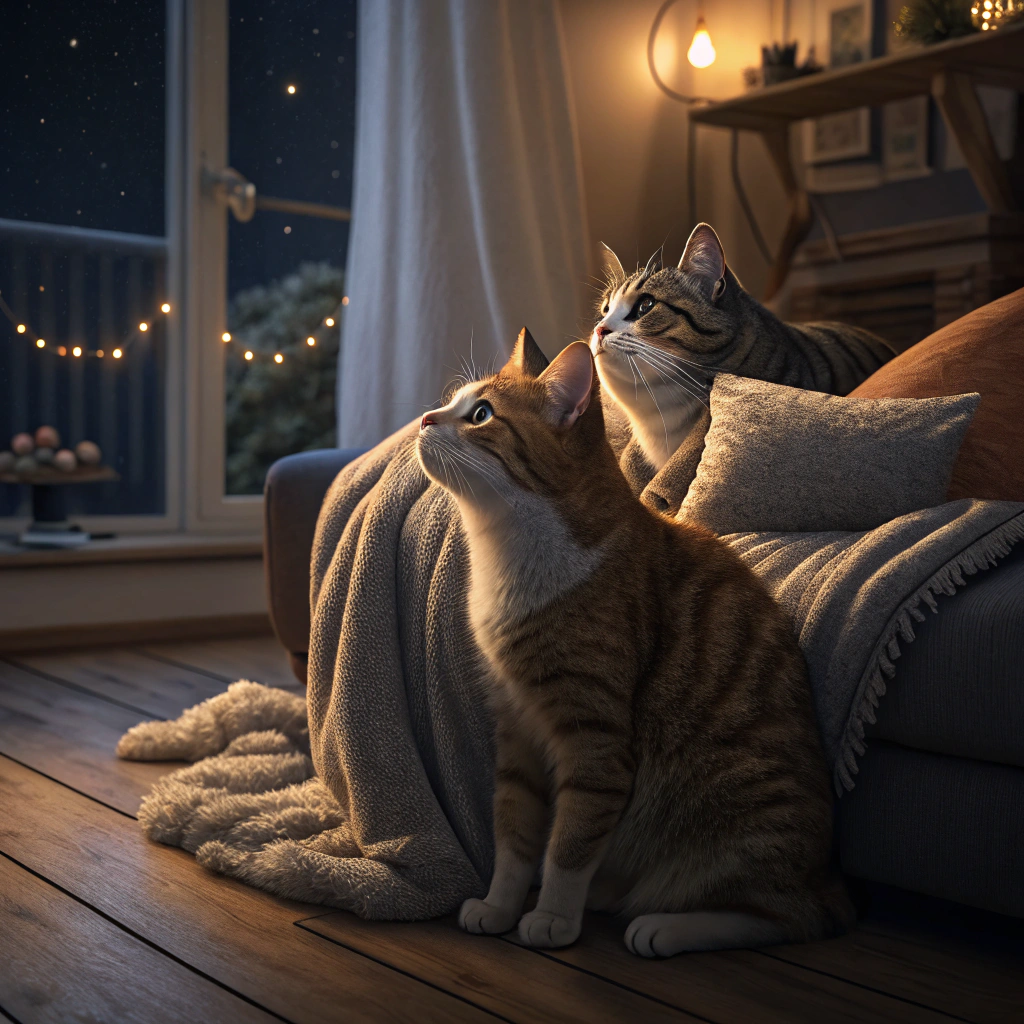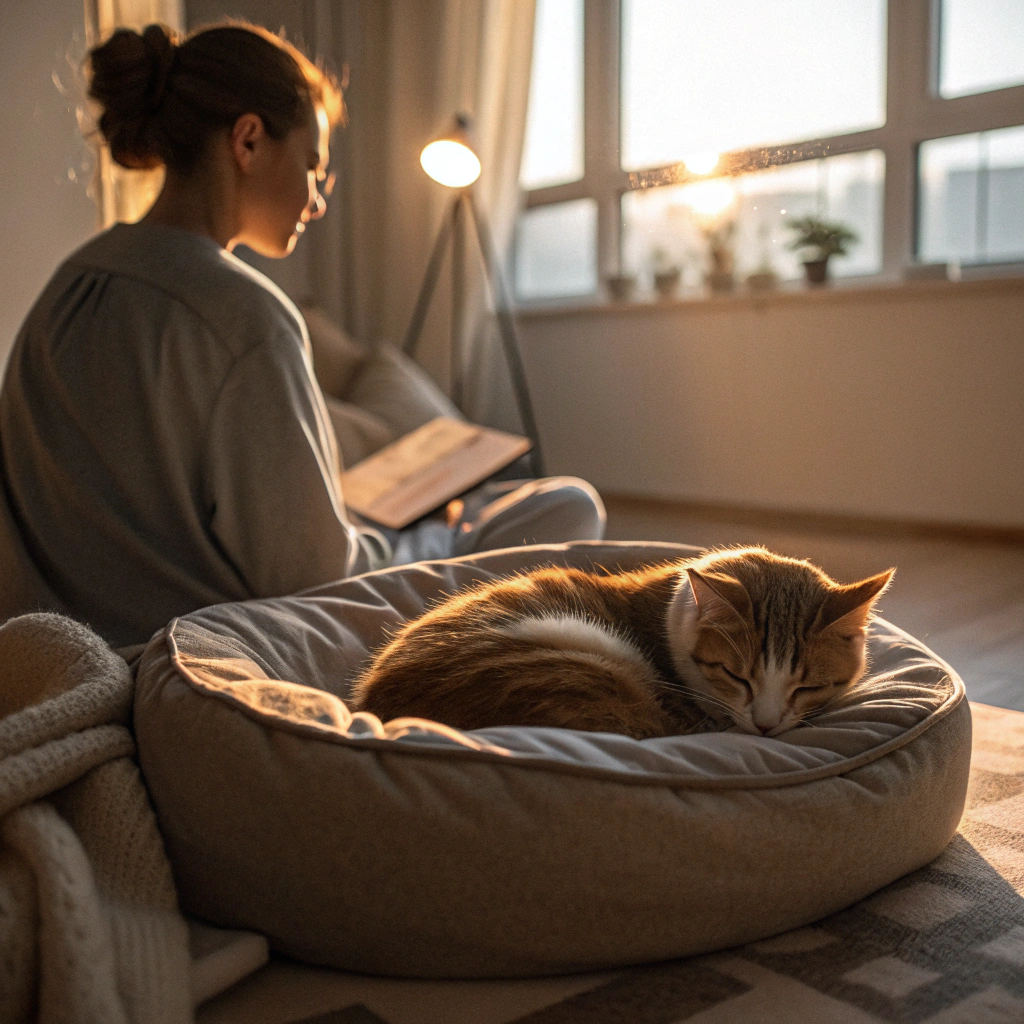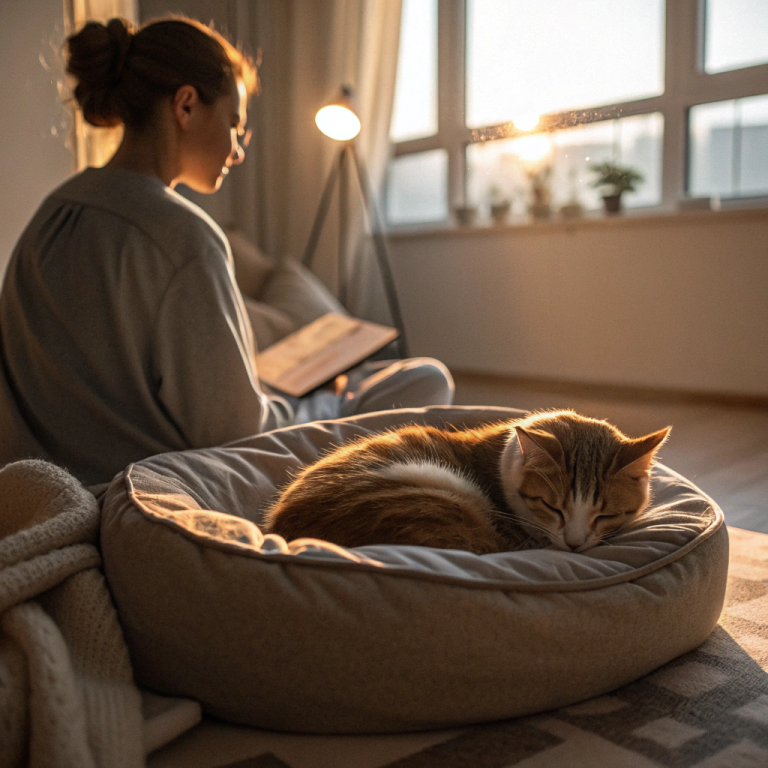Cats Don’t Wake You Up At Night Because They’re Jerks — Experts Reveal the Real Reason
If you’ve ever been jolted awake by your cat pawing at your face or meowing at 3 a.m., you’ve probably wondered if your feline is just being mischievous. The truth is, they’re not out to ruin your sleep. Experts say there’s actually a fascinating reason behind your cat’s midnight antics and it has more to do with instinct and communication than attitude.
Note: This article is for general informational purposes only. Every cat’s behaviour is unique. Consult a veterinarian or animal behaviourist for specific concerns.
Cats Follow Their Natural Rhythms
Cats are crepuscular animals, meaning they’re most active during dawn and dusk. While you’re winding down for the night, your cat’s internal clock is telling them it’s prime time for play and hunting.
Dr. Mikel Delgado, a certified cat behaviour consultant and researcher at the University of California, explains that domestic cats retain much of this wild rhythm even when they live indoors. “Cats are wired to hunt small prey throughout the day and night,” she notes. “Even though they’re well-fed, that instinct doesn’t just disappear.” So when your cat suddenly zooms around the house or bats at your face at 2 a.m., they’re simply following ancient instincts not trying to annoy you.
They’re Seeking Attention or Interaction
Sometimes, your cat wakes you because they miss you. If you spend long hours at work or are away during the day, nighttime might be the only quiet time your feline has to connect. Meowing, pawing, or climbing on you is your cat’s way of saying, “Hey, I missed you let’s hang out!” While it’s undeniably cute, it can be disruptive to your rest.
To help, try scheduling consistent play sessions before bed. This gives your cat the attention and activity they crave on your terms, not theirs.
Their Feeding Schedule Plays a Role
Cats thrive on routine, and hunger is a powerful motivator. If your cat associates early morning hours with breakfast, it’s no surprise they start meowing at your door or patting your face to remind you it’s time to eat.
Animal behaviourists often recommend feeding cats their largest meal right before bedtime. A full stomach helps them sleep longer through the night instead of prowling the house for snacks or you. For extra help, consider using an automatic feeder to deliver breakfast at a set time, even before you’re awake.

Sensory Triggers in the Night
Cats have incredibly sharp senses. They’re sensitive to small noises and light changes — even a bird chirping outside or a flickering streetlight can trigger their hunting instincts. If your feline friend tends to spring into action around dawn, try using blackout curtains, white noise machines, or keeping them in a quieter room overnight. Reducing sensory stimulation helps signal that it’s time to rest, not hunt.
They Might Be Bored or Under-Stimulated
A cat that naps all day has plenty of energy to burn when you’re trying to sleep. Indoor cats especially need mental and physical enrichment to stay balanced.
Try these strategies:
- Rotate your cat’s toys every few days to keep them exciting.
- Provide scratching posts and climbing trees.
- Use puzzle feeders that make them “work” for their meals.
- Engage in interactive play, like feather wands or laser chases.
The more activity and stimulation they get during the day, the more likely they’ll rest soundly at night.
Age and Health Can Influence Behaviour
As cats get older, their sleep patterns and activity levels can change. Senior cats or those with medical conditions such as hyperthyroidism, arthritis, or cognitive decline may show increased restlessness at night. If your cat’s nocturnal behaviour is new, sudden, or extreme, it’s always best to book a vet check-up. Addressing any underlying issues can help both of you sleep better.
How to Encourage Better Nighttime Habits
You can gently train your cat to align more closely with your schedule:
- Feed before bedtime A satisfied cat sleeps longer.
- Play before bed Burn off energy through hunting-style games.
- Ignore nighttime meowing Giving in reinforces bad habits.
- Provide cosy spaces A warm, quiet bed in another room can work wonders.
- Stick to routines Cats feel secure when life is predictable.
Patience is key over time, most cats adjust beautifully.
The Bottom Line
Your cat isn’t waking you up at night because they’re being difficult. They’re acting on natural instincts, trying to connect, or following learned routines. By understanding the why behind the behaviour and adjusting feeding, play, and environment, you can help your cat feel fulfilled and finally enjoy a peaceful night’s sleep.

FAQ
Why does my cat wake me up at night?
It’s usually instinctual. Cats are most active during dawn and dusk and may also seek food, attention, or playtime.
Should I ignore my cat when they wake me?
Yes consistency is key. If you give in once, they’ll keep trying. Wait until morning to feed or engage.
How can I stop my cat from waking me?
Feed and play before bedtime, use blackout curtains, and create a predictable routine.
Is night-time activity normal for cats?
Absolutely. It’s part of their natural rhythm, especially in young or indoor cats.
When should I see a vet?
If your cat’s sleep habits change suddenly or they seem distressed, restless, or vocal, consult your veterinarian.

